SUMMARY
This is AI generated summarization, which may have errors. For context, always refer to the full article.
![[ANALYSIS] The virtual migration of call center agents](https://www.rappler.com/tachyon/2021/04/call-center-agents-virtual-migrants-April-14-2021.jpg)
Disclaimer: The real names of the BPO workers mentioned in this piece have been replaced by aliases.
I met Karen at 7 pm in a coffee shop.
The seats were filled with people wearing lanyards signaling company allegiance – call center agents gearing up for a night of work. We had our interview just before her shift at a nearby BPO company; her work started at 10 pm and ended at 7 the next morning. She was young – 22 at the time of the interview – and she’d been with her company for over two years. Professionally, call center work was all she’d ever known.
Karen is just one among a group of people who live on inverted time. As customer service representatives catering to American clients, their experience of daily life is oriented toward America: they wake when Americans wake, sleep when Americans sleep. All this while their families outside the call center space live along a different temporal axis.
The social costs of call center work
Being out of time has consequences for agents’ lives outside the call center. For Karen, call center work has had a big impact on her social life: “Family bonding, social life, friends? I cannot do that because of the call center.” Since agents and their families and friends do not move along the same temporal rhythm, they cannot occupy the same space.
Indeed, for many agents, the moments in which call center agents occupy the same time and space as their family are marked by departures: agents coming home just as the rest of their family is leaving; their family coming home just as the agents are leaving. The transience of these encounters with their loved ones generates feelings of longing and loss, and this is no more starkly shown than in Floy’s account.
Floy is a 42-year-old agent who has been in the sector for over 12 years. She has two children who were both in high school when she first joined the BPO sector. As a mother, Floy laments the milestones she had to miss in her children’s lives because of her work:
“Lalo na yung graduation ng dalawa kong anak, hindi talaga ako naka-attend. Nakakalungkot. Kasi ano eh, may pasok eh. Parang sabi, ‘Si tatay na lang lagi’…. Yun na lang pambawi mo…bala ng PS4. Pero kasi iba pa rin yung presence ng nanay eh noh? Yung, oo nabili mo nga yung gusto nila, pero nung graduation wala ka. Kaya wala nga akong ma-post sa Facebook na kasama ko sila eh.”
(My two kids’ graduations – those I couldn’t attend. It’s sad, because I had to work then. They say it’s always just their dad that shows up. I try to make up for it with gifts like PS4 cartridges, but having me be there with them – that’s something else, isn’t it? Yes, you were able to buy the things they want, but you weren’t there at their graduation. It’s why I can’t even post anything on Facebook showing I was with them.)
Missing graduations, birthdays, weddings, and even simple dinners, and having to compensate for these lost moments with gifts – it’s a common refrain among our OFWs and their families. Scholars and advocates call this a “care drain” – the emotional gap that opens between migrants (especially women migrants) and their children when the parents work overseas, and the disruption in the daily family life that this gap engenders.
Floy has not left to work overseas, and yet her stories are not unfamiliar to us. We are seeing here the social costs of migration, but they are happening within our borders. They are happening in the very industry that only eight years ago, at the BPAP’s International Outsourcing Summit, then-President Noynoy Aquino directly lauded for “offering opportunities in-country…and arresting the social costs of working abroad.”
Virtual migration
As agents are brought farther away from everyday Filipino life with their families, they are simultaneously brought closer to their foreign (often American) clients. From the moment they step foot into the call center space, they are trained to inhabit and perform American-ness to such a degree that they are indistinguishable from the average American. A successful agent is an invisible agent: they must know the different time zones in the US; they must know American geography; they must know how to make jokes and read between the lines and speak as if they were in America, all while they sit time zones away.
This fluency is not easily obtained within the two-month training period that agents have before taking calls, even for a people with such close ties to America and its culture. It is obtained by subscribing to Netflix and watching American shows to practice your English-speaking skills. It is obtained by watching CNN and opening up your knowledge to the world beyond your country. It is obtained by speaking to your family in English even at home. It is obtained through the keen awareness that if you slip in your performance, you might have to contend with the prejudice and racism your performance allowed you to escape.
The constant interaction that agents have with Americans and agents’ immersion in American life and culture – no matter how mediated and manufactured these experiences are – make it difficult to contain the performance of American-ness within the bounds of the call center. Agents bear markers of their Americanization far beyond the accent they acquire.
Grace, a former agent and now a trainer, narrates one example of how call center workers are stigmatized:
“There’s a speculation that if you work in this industry, quote-unquote flings… are usual, and I won’t blame them. It’s really common. I think it all comes with culture…. You usually work with American culture? And you know American culture…. They’re more liberated? So I think in this industry there are instances that call center agents are acquiring that kind of liberated outlook.”
Sean, another trainer, echoes Grace’s point. According to Sean, there is a negative reaction to these observed changes that forms part of the wider stigma against working in the BPO industry. This stigmatization serves as a boundary between Filipino call center workers and the wider Filipino society. As a result of Filipino agents’ inability to contain the markers of their immersion in an Americanized virtual space, they are effectively “othered” due to perceived gaps in Filipino-ness. This in turn reinforces both their proximity to their American customers and their distance from Filipino society.
Agents’ distancing from Filipino life and the manufacturing of their proximity toward America creates an experience of displacement not unlike those migrant workers go through, all without physically leaving the Philippines. Movements of time, space, and subjectivity coalesce to create an experience of what scholars call virtual migration.
A ‘pseudo’ migration?
However, actual Filipino migrants who move to another country leave most of the physical markers that help them embody their Filipino-ness, thereby completing their movement toward a foreign place. But agents do not have such a clear separation from their place and culture of origin. While they learn to internalize, embody, and perform American identities, they never completely experience the physical and nonphysical “moving-away” that actual migrants do.
The moment they step out of the call center, they are brought back to Filipino everyday life: sellers speaking in Tagalog, the cramped streets of Metro Manila, and all the physical and social manifestations of living in a third world country.
The weekend – whatever days of the week this may fall on – is a crucial moment of return and reintegration. It is a way to reconnect with family, with the roles assigned to them. These breaks from call center life open up the opportunity for a realignment with time and space, and a re-embedding within the fabric of Filipino community. These agents’ embodiment in the Philippines interrupts the migration of their consciousness to America.
This journey back to the rhythm of life outside the call center within such a condensed period of time actually produces physical effects on the bodies of agents that are very similar to the jetlag travelers experience when they physically move to another country, as Grace’s testimony shows:
“There are times when I overslept…probably 14, 15 hours? Of course, naturally, you’ll feel…lousy all day. You’ll feel lightheadedness. But that’s your goal.”
This return to “normal” Filipino life is just as temporary as the agents’ stay in the Americanized space of call center work. Once again, agents must realign their time, space, and identity with their customers’. This constant journey back and forth from their homes to the call center and back again results in a liminal experience where they are constantly moving toward (America) and away (from the Philippines), but never actually arriving and leaving. And it is up to the call center worker to navigate and negotiate the pressures of this limbo-like existence on their sense of self, their sense of identity, their sense of community.
Some, like Karen, embrace their Americanized qualities. Others, like Mark, assert that “I am still Filipino.” And as remote work becomes increasingly commonplace across industries, and the pressure for us to be globally competitive citizens who are at the same time involved in the work of nation-building mounts, perhaps we will find that the experience of in-betweenness of BPO workers will not only be confined to their space. – Rappler.com
Ericka Nava is a graduate of Ateneo de Manila University, where she wrote her MA thesis on call center agents’ experience of virtual migration. She currently works as a research officer for an NGO.
Add a comment
How does this make you feel?
![[PODCAST] Hear, Hear: The diary of a call center agent](https://www.rappler.com/tachyon/2021/04/hear-hear-podcast-sq.jpg?fit=449%2C449)
![[OPINION] In a changing climate, how do we ensure safety and health at work?](https://www.rappler.com/tachyon/2024/04/Climate-change-safety-workers-April-25-2024.jpg?resize=257%2C257&crop_strategy=attention)
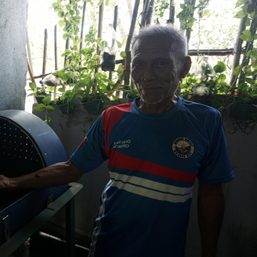
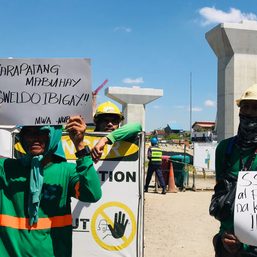

![[Episodes] Fairness to freelancers](https://www.rappler.com/tachyon/2024/02/Freelance-Writers-Guild-of-the-Philippines-rate-guide.jpg?resize=257%2C257&crop=217px%2C0px%2C720px%2C720px)

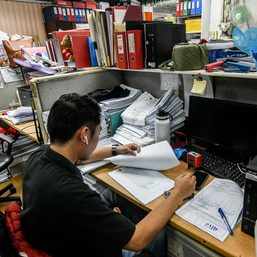
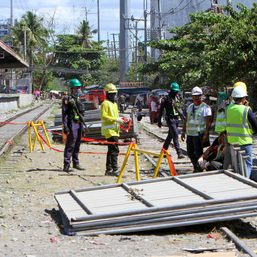
![[ANALYSIS] A new advocacy in race to financial literacy](https://www.rappler.com/tachyon/2024/04/advocacy-race-financial-literacy-April-19-2024.jpg?resize=257%2C257&crop_strategy=attention)
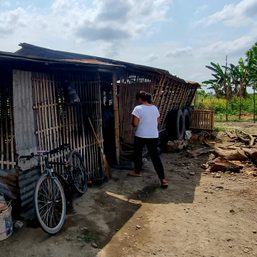
There are no comments yet. Add your comment to start the conversation.